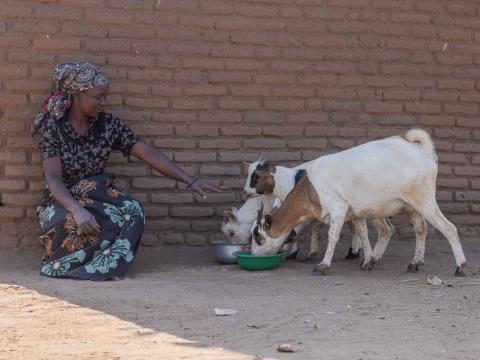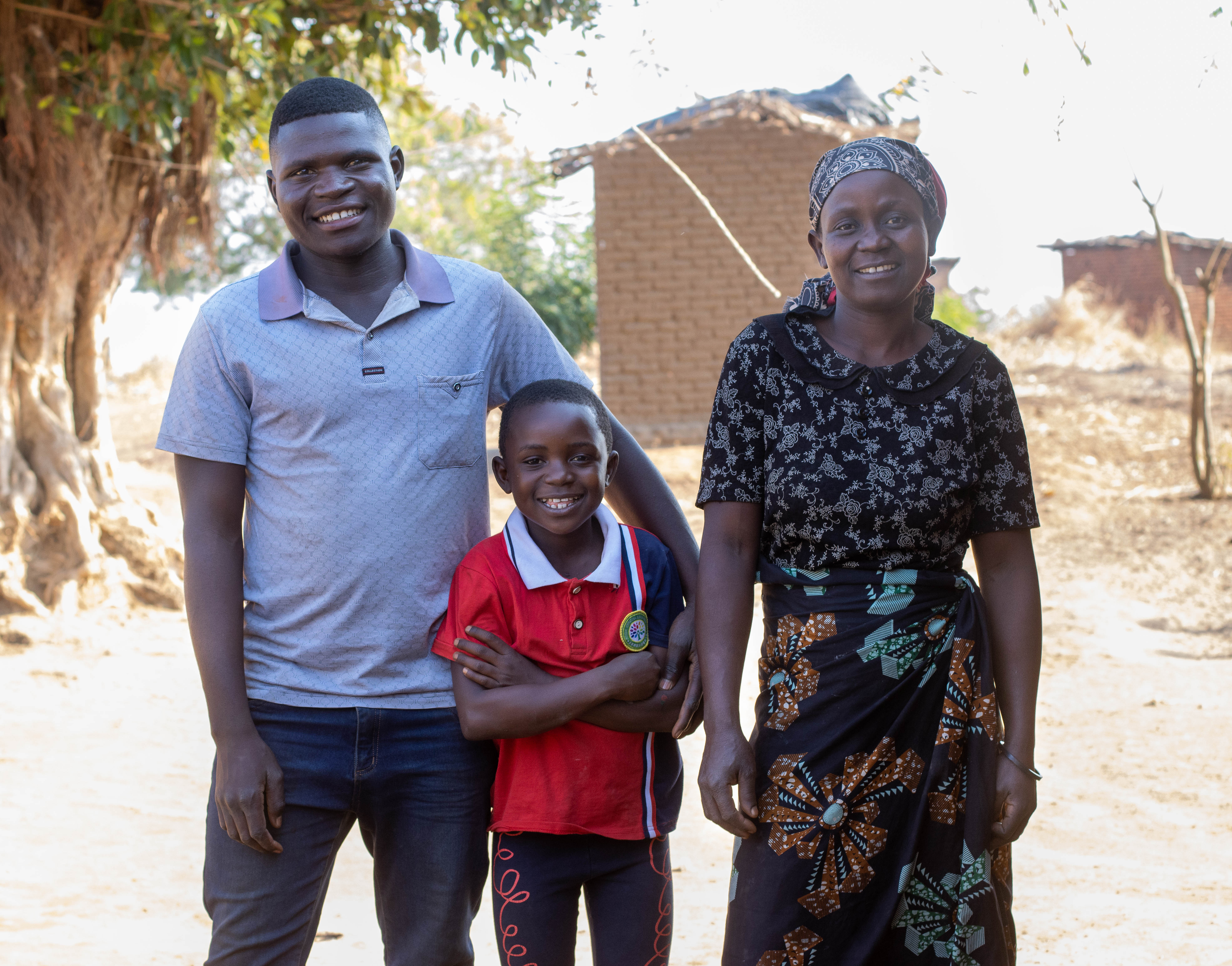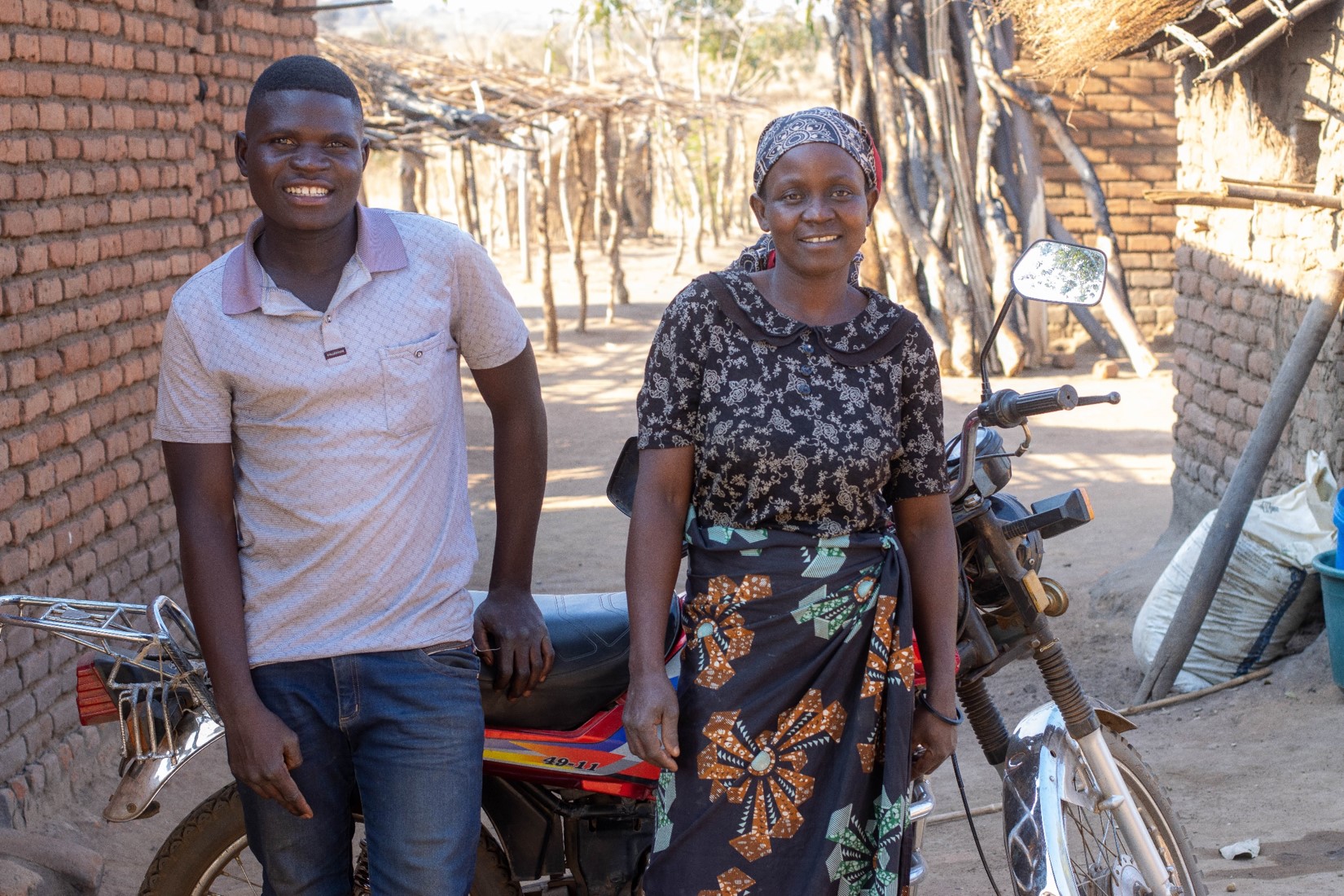From Struggles To Stability, How One Family’s Life Changed through Farming

For years, Milca and her husband Foster of Chiwichiwi village in Kasangazi area Program, lived a life of constant worry, feeding her children was always uncertain, school needs were a burden, and each farming season brought disappointment, their small piece of land, though worked tirelessly, produced very little.
“It was painful for me to see my children growing up with so many needs that I couldn’t meet, sometimes we had no food in the house, sometimes no soap, and many times I failed to send them to school because there was simply no money,” says Milca.
She remembers how her older children, now in their teens and twenties, endured hardships that shaped their childhood.
“They grew up knowing hunger, Many times, they went to school without eating anything. Even when they were sick, it was hard to find money for hospital bills, that is the life they knew,” says Milca.

Everything began to change when World Vision introduced the Livelihood and Resilience Project in their community where the minds of people were transformed through the Empowered world view. Milca and her family joined the training sessions where they learned how to make organic manure, diversify crops, and manage their yields better.
“At first, we thought it was just talk, but when we tried what we learned, we were amazed. The same fields where we used to harvest very little suddenly started producing more, that was when we believed,” says Milca.
The change has been dramatic, with improved harvests, the family now enjoys food security. They sell surplus maize, groundnuts, and beans, which has enabled them to buy goats and even a motorcycle, something Milca never thought possible.

“I see the difference in how I am raising my last born, Doreen, compared to the others, she has school uniforms, exercise books, and food every day I can give her the things I failed to give her siblings that makes me very happy as a mother,” says Milca.
She says this has transformed their mind a lot because now she and her husband makes decisions together unlike in the past where it was just the husband.
“The empowered world view training has transformed us a lot from how we do our farming and how the decisions are being made in the household.” says Milca.
Her 19-year-old son, Lingson Foster, who is in Form 2, reflects on the contrast.
“Life was difficult before, we used to walk to school with empty stomachs, and our clothes were old and torn, it was embarrassing sometimes at home, we felt like there was no hope but now things have changed.
We eat three meals a day, my mother supports me with school needs, and I don’t feel the same struggles my older siblings went through. I believe I can finish my education,” says
Milca says she is grateful not just for the material things, but for the dignity and hope the project has restored in her family.
For her, the Livelihood and Resilience Project did more than boost yields, it gave her family a second chance at life.